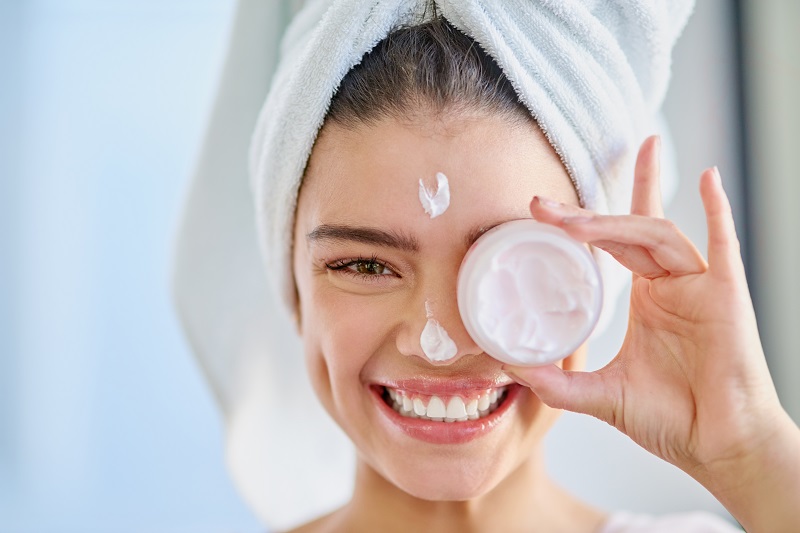The Sweet Life of Bettajelly
Exploring delicious recipes, fun food trends, and lifestyle tips that bring joy to your everyday.
Moisturizer or Mirage: Can It Really Change Your Skin?
Discover the truth about moisturizers—can they really transform your skin or are they just a mirage? Unveil the secrets today!
The Science Behind Moisturizers: Do They Really Transform Your Skin?
The science behind moisturizers revolves around their ability to hydrate the skin and prevent water loss. A moisturizer acts as a barrier, trapping moisture in the skin and enhancing its natural ability to maintain hydration. Many products contain key ingredients such as hyaluronic acid, which can hold up to 1000 times its weight in water, and glycerin, known for its humectant properties. Regular use of moisturizers can lead to significant improvements in skin texture, resulting in a smoother and more youthful appearance.
However, the effectiveness of a moisturizer also depends on individual skin types and conditions. For example, those with oily skin might benefit from lighter, oil-free formulations, while individuals with drier skin may require richer creams. It's crucial to choose a product that suits your unique needs. Moreover, while moisturizers play a vital role in skincare, they work best when combined with a comprehensive routine that includes cleansing, exfoliating, and sun protection, ensuring a true transformation of your skin over time.

Moisturizer Myths Debunked: What You Need to Know About Your Skincare
In the world of skincare, there are many moisturizer myths that can lead to confusion and misinformed choices. One of the most common misconceptions is that individuals with oily skin do not need to use a moisturizer. In reality, hydration is essential for all skin types, and skipping this step can lead to increased oil production as the skin tries to compensate for the lack of moisture. Additionally, using the right type of moisturizer can help balance oil levels and improve overall complexion.
Another pervasive myth is that thicker creams are always more effective than lighter lotions. In fact, the efficacy of a moisturizer depends on its formulation and ingredients, rather than just its consistency. Many lightweight products contain potent humectants and emollients that can effectively hydrate the skin without clogging pores. When choosing a moisturizer, focus on the ingredients that work best for your skin type, rather than solely on texture.
Is Your Moisturizer a Mirage? Understanding the Real Benefits for Your Skin
Many of us have experienced the disappointment of using a moisturizer that promised to deliver radiant, hydrated skin, only to find ourselves facing dryness and dullness days later. This common scenario begs the question: Is your moisturizer a mirage? To understand the real benefits of your moisturizer, it's essential to examine its formulation. Ingredients like hyaluronic acid and glycerin are known for their ability to attract water to the skin, while occlusives such as petrolatum help to seal in moisture. Knowing what you’re applying can mean the difference between a true skin savior and a cosmetic letdown.
Furthermore, it's important to recognize that not all moisturizers are created equal. Different skin types and conditions require tailored solutions; for instance, those with oily skin might benefit from a lightweight, oil-free gel, while dry skin may demand a richer cream. Additionally, environmental factors like climate and pollution can impact how effective your moisturizer is. Hence, understanding your skin's unique needs and choosing the right product is vital. In essence, a good moisturizer should do more than just sit on the surface; it should work in synergy with your skin to truly enhance its health and appearance, leaving behind the notion that moisturizers are mere mirages.